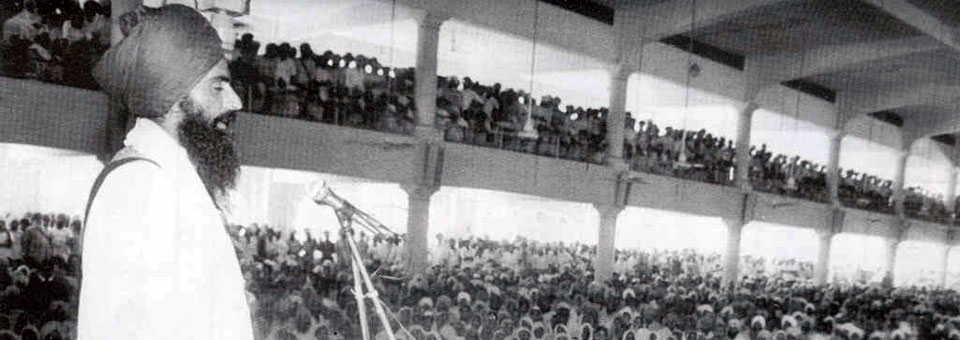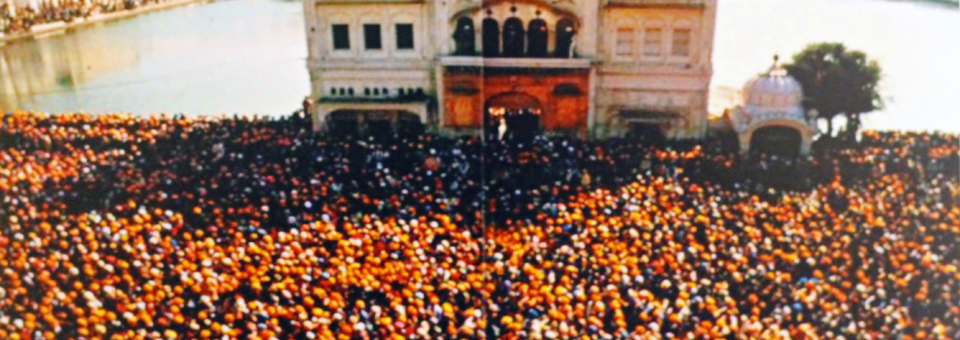The process to elect the new body for Sikh religious places was in the last phase of campaigning over the last few weeks before Sunday’s chaotic polling day.
The body known as Shiromani Gurudwara Parbandhak Committee (SGPC) has an extreme importance for Sikhs as it is the representative body which controls and manages the historic Gurudware and serves as a platform to formulate the affairs of the Sikhs worldwide. This body came into existence during the British Raj and served as a joint platform to keep the Sikhs together and strive for recognisable identity and dignity. This body has a historic past, but still hasn’t lived up to its potential. The reasons can be many, but in the main it is due to the very process through which we elect our members – an electoral system.
The electoral process for SGPC candidates has become flawed over time. Being a religious-oriented body, but one that has to serve in a political manner, candidacy and electoral promises have helped to move the body away from its main course and direction. Unfortunately, the SGPC cannot be looked at as a uniform platform to guide the Sikhs politically and socially let alone do so with a morale responsibility.
It was through the SGPC that the main Sikh political party, the Shiromani Akali Dal (SAD) came into existence and originally was supposed to run under its guidance. But with time, the tables have turned. The Akali Dal – the political party with responsibility to safeguard Sikh politico decisions – has emerged as the main body which is overshadowing the SGPC. All decisions, be it the appointment of SGPC President, the appointment of Jathedar of Sri Akal Takht Sahib and other Jathedars has come under the domain of the Akali Dal. This has lowered the dignity of the SGPC and more worryingly, the prestige and respect of Jathedar of Sri Akal Takht Sahib.
To begin with, the electoral process is under the control of the central Indian Government and though a Sikh commission is present to oversee proceedings, ultimately the power lies with the Government. The purpose of the British was to give some semblance to Sikh authority, to keep them with the ruling class, but with independence in 1947 this should have been corrected to give the SGPC the prestige for which Sikhs wanted it to come into being. Worldwide, Sikhs look to the SGPC for guidance and authority, but now it is not with the same kind of respect and authority. Remarkably, many flaws which were there from the beginning have become greater rather than being plugged. Now these enormous resources are at the command of a political party that has been exploiting it for too long a time and other opposition sides in the Sikh world have not been able to come up with the required strength to control and reverse the downward trend.
This body with enormous funds is today being questioned for all the wrong reasons – the deficit in the budget (even the most revered Harimandir Sahib has a deficit of enormous proportions); overspending; all of the colleges are in debt; half of the schools run by the SGPC are unable to sustain themselves; we as Sikhs can’t boast of a Sikh university of a repute even close to Cambridge or Oxford despite the embarrassment of financial wealth; no good hospitals where we can provide basic affordable healthcare to those of our people who can’t afford it… The wrong stories emerge every day which tend to lower our esteem toward our religious places of inspiration and respect.
Religion and the people who run religious affairs are a symbol through which we try to correct our mind-slums and attain a balance to fulfil our basic duties towards mankind for which our Gurus have lived and sacrificed. This body needs to be corrected and brought under the control of those Sikhs who can guide us and help us attain those goals. Mainly, the issues of dignity and respect which has been vanishing from our coming generations can be brought back if we as Sikhs can get our act together and bring forth those very individuals who can live up to that potential.
With each new election for the SGPC, decaying faces step up and gain election, the system through which this process is run itself needs correction.





